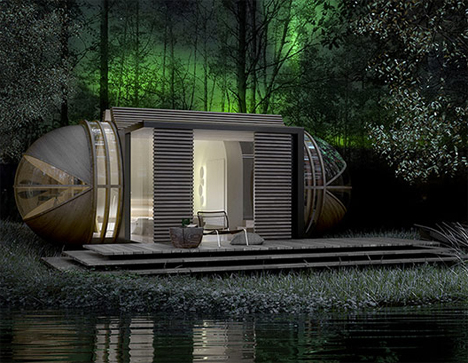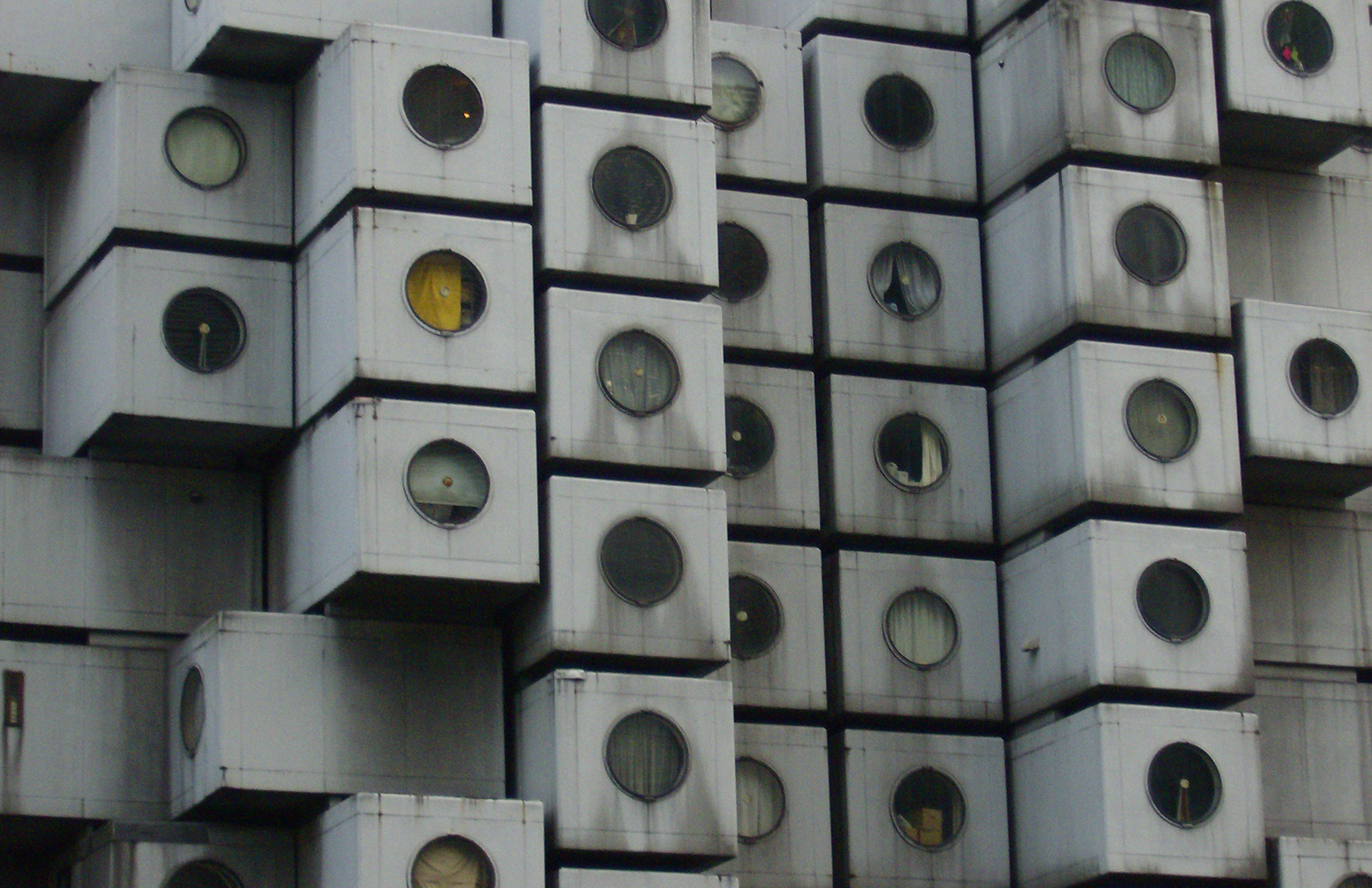Affordable and Eco-Friendly Living with Capsule Houses: A Modern Approach
Affordable and Eco-Friendly Living with Capsule Houses: A Modern Approach
Blog Article
Why Modular Residences Are the Future of Lasting Living
Modular homes are significantly recognized as a pivotal remedy for sustainable living, supplying a mix of efficiency, cost-effectiveness, and environmental benefits. Their building in controlled environments dramatically minimizes waste and boosts precision, while the potential for incorporating innovative energy-efficient systems positions them as a forward-thinking alternative in housing. In addition, the adaptability of modular layouts allows for the combination of sustainable modern technologies and materials tailored to specific needs. As we browse the obstacles of urbanization and environmental sustainability, one need to think about how these homes might redefine our approach to living areas.
Ecological Benefits of Modular Homes
The environmental benefits of modular homes stand for a substantial action towards lasting living. These homes are constructed in controlled factory settings, which substantially decreases waste produced during the building procedure. By maximizing materials and lessening excess, modular building and construction adds to an extra effective use resources contrasted to conventional building approaches.
In addition, modular homes are usually made with power efficiency in mind. Several include innovative insulation techniques, energy-efficient windows, and sustainable materials, adding to reduced energy consumption. This can result in lowered greenhouse gas discharges over the life expectancy of the home, improving its general ecological profile.
The ability to transportation and put together modular components on-site additionally lowers the carbon impact associated with building and construction logistics. Lots of modular homes are built to be conveniently upgradeable and adaptable, enabling house owners to implement sustainable innovations, such as solar panels and energy-efficient heating systems, over time.
Eventually, the ecological benefits of modular homes not only advertise sustainable living however additionally encourage a more responsible strategy to housing growth, lining up with worldwide initiatives to combat climate modification and preserve all-natural sources for future generations.
Cost-Effectiveness and Affordability
Building a home commonly represents one of the biggest economic investments individuals make in their lifetime, and modular homes offer a compelling service for those seeking cost-effectiveness and cost. One of the key benefits of modular homes is their reduced building costs contrasted to typical site-built homes. The streamlined production procedure permits for substantial financial savings on labor and materials, which equates to decrease rates for consumers.
Additionally, modular homes commonly have much shorter building timelines. This not just lowers costs associated with financing and insurance policy but likewise mitigates the threats connected with rising cost of living and varying market problems. Numerous purchasers find that modular homes can be tailored to fit their budgets without sacrificing top quality or layout.
Furthermore, power performance is commonly constructed right into the style of modular homes, resulting in minimized utility expenses in time. Lots of makers prioritize sustainable materials and techniques, even more improving the lasting economic feasibility of these homes. On the whole, the combination of first cost savings, fast construction, and recurring power performance makes modular homes an eye-catching option for those wanting to buy sustainable living without breaking the bank.
Performance in Building
Modular homes not only provide economic benefits however additionally master construction efficiency. The modular structure process involves the synchronised construction of components in a factory setting while site prep work takes place simultaneously. This identical method significantly decreases the general timeline from conception to conclusion, commonly cutting construction time by approximately half contrasted to traditional techniques.
Moreover, factory-controlled environments improve quality control. By making use of accuracy production methods, modular homes are developed to precise specifications, decreasing waste and mistakes. This uniformity not only causes a greater top quality item yet likewise adds to lasting methods by minimizing material waste during building and construction.
In addition, the usage of contemporary innovation and automation in the production procedure enables quicker setting up and decreased labor expenses. As soon as the components are delivered to the Web Site site, they can be successfully set up, additionally quickening the timeline. This structured procedure is not only valuable for builders but also decreases disturbances to the surrounding atmosphere throughout building and construction.
Customization and Layout Adaptability
An excellent selection of modification choices distinguishes modular homes, enabling house owners to customize their space to fulfill details needs and preferences. This design adaptability is a characteristic of modular building and construction, making it possible for customers to pick every little thing from floor plans and area designs to coatings and components. Unlike standard homes, modular designs help with a joint strategy where builders and engineers work very closely with house owners, making certain that each facet aligns with visual needs and specific way of lives.
In addition, modular homes can be conveniently reconfigured or increased, suiting transforming family characteristics or developing personal tastes. This adaptability not just enhances the home's functionality but also contributes to long-term sustainability, as homeowners can change their spaces instead than look for new housing options.

Future Patterns in Lasting Real Estate
Emerging patterns in sustainable housing are improving the landscape of property construction, emphasizing innovative technologies and green techniques. One considerable trend is the assimilation of clever home modern technology, which boosts power efficiency via automated systems that enhance and keep an eye on power usage. This not just reduces energy prices but likewise adds to a reduced carbon impact.
Furthermore, using sustainable materials is becoming progressively usual. Building contractors are selecting recycled, locally sourced, or quickly eco-friendly products, which decrease ecological influence and support local economic situations. In addition, modular homes are acquiring popularity for their decreased waste during building and construction and their adaptability to numerous surfaces and environments.
Another trend is the incorporation of eco-friendly roofing systems and living wall surfaces, which boost air high quality and supply all-natural insulation. These attributes additionally advertise biodiversity in city areas.
Verdict
Finally, modular homes arise as a pivotal remedy for sustainable living, using considerable environmental advantages through minimized waste and power effectiveness. Their cost-effectiveness and price resolve the growing housing needs in metropolitan areas, explanation while efficient building procedures improve total efficiency. The fundamental personalization and style flexibility deal with diverse preferences and requirements. As patterns in sustainable housing advance, modular homes are positioned to play an important duty in advertising green living practices for future generations.
Structure a home typically stands for one of the biggest economic investments individuals make in their lifetime, and modular homes use a compelling service for those looking for cost-effectiveness and affordability. One of the main benefits of modular homes is their reduced building and construction prices compared to typical site-built homes. Generally, the combination of preliminary cost financial savings, fast building, and ongoing energy effectiveness makes modular homes an attractive alternative for those looking to invest in sustainable living without damaging the bank.
Ultimately, the modification and style flexibility used by modular homes make sure that they are not just frameworks, however personalized shelters that reflect the one-of-a-kind identifications helpful site of their occupants while promoting sustainable living practices.

Report this page